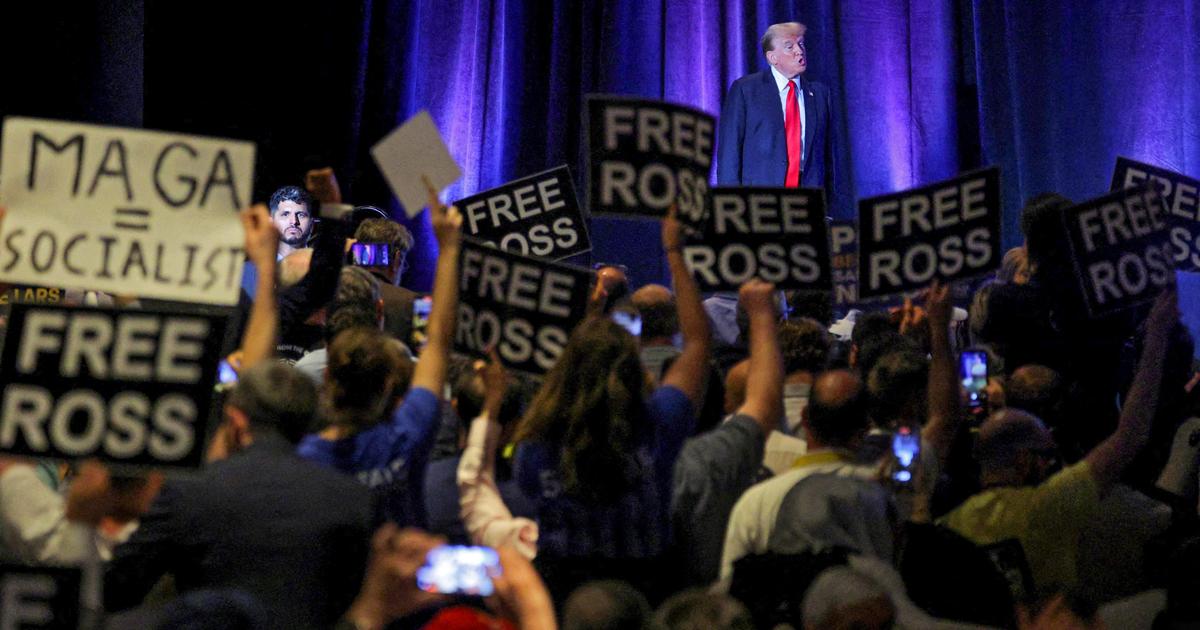Donald Trump, the virtual Republican candidate for the upcoming American presidential election, faced an unusual and hostile audience at the National Convention of the Libertarian Party in Washington this past Saturday. Amidst boos and jeers, Trump sought to garner support from libertarians by proposing measures that align with their ideologies, especially focusing on individual freedom and limited government.
One of the most notable announcements from Trump's speech was his promise to commute the life sentence of Ross Ulbricht, the founder of the notorious website Silk Road, often referred to as the 'eBay of drugs.' Ulbricht was sentenced to life imprisonment without parole in 2015 for running the online black market, which facilitated the sale of illegal drugs worth $200 million and other illicit items using bitcoin. Trump's pledge received a standing ovation from the libertarian crowd who have long criticized Ulbricht's conviction as an overreach of government power.
Despite some applause for his announcement about Ulbricht, Trump's attempt to win over the libertarians was met with considerable resistance. Many in the audience were critical of his previous policies, particularly the increase in the federal deficit and the development of COVID-19 vaccines, which some attendees believed benefitted pharmaceutical companies excessively. Trump's invitation to the convention itself was a point of contention within the party, which generally prioritizes individual freedoms and minimal government intervention.
Throughout his speech, Trump targeted incumbent President Joe Biden, calling him a 'tyrant' and 'the worst president in American history,' to which the crowd had mixed reactions. He also sought to appeal to the libertarians by promising to appoint a libertarian to his government if elected. However, this promise was largely drowned out by boos.
The speech was part of Trump's broader strategy to reach out to potential voters in less traditional Republican strongholds. For example, on Thursday, he visited the Bronx, a largely disadvantaged district in New York City, to engage Hispanic and African-American voters, who have shown diminishing support for Biden. Despite these efforts, the divided reception at the libertarian convention underscores the larger national sentiment, where polls indicate that a majority of voters are not enthusiastic about a Biden-Trump rematch in the 2020 election.
Libertarians, who are in the process of nominating their candidate for the White House, are also eyeing the same pool of voters disillusioned with the traditional two-party system. Independent candidate Robert F. Kennedy, Jr., who also spoke at the convention, presents himself as another option for these voters. Although Trump praised Kennedy on previous occasions, he recently labeled a vote for him as a 'wasted protest vote,' expressing a preference for even Biden over Kennedy.
In conclusion, Trump's appearance at the Libertarian convention was a bold move aimed at expanding his support base but revealed significant divisions and resistance within the party toward his candidacy. His promises to commute Ulbricht's sentence and perhaps include a libertarian in his potential government may attract some libertarians, but widespread approval remains uncertain.
- Michael Rectenwald, one of the candidates for the Libertarian presidential nomination, made it clear that the party's base is not aligned with Trump's values. Although some libertarians might appreciate his gestures, leaders like Peter Goettler of the Cato Institute argue that Trump's appearance at the convention signifies a shift in the party's identity.
- Trump's broader campaign efforts highlight his strategy of outreach in non-traditional Republican sectors, illustrated by his recent rally in the Bronx. However, integrating libertarians into his base amidst their core belief in limited government remains challenging.






